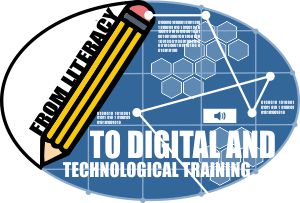During the implementation stage of this project, various activities have been carried out, among which stand out:
TRANSNATIONAL MEETINGS
– FIRST TRANSNATIONAL MEETING (M1 – VIRTUAL)
This first transnational meeting of the project was held on June 26th, after having been postponed in March as a result of the situation caused by the COVID-19 pandemic.
For the preparation of this meeting, we created its agenda, a summary of the project, a powerpoint presentation of the project and its results, a visibility dossier including a poster of the meeting, a banner for the websites of the partners, and a press release, as well as supporting documentation: registration and special needs surveys, signature sheets, certificates proving the attendance of the participants, and an evaluation form.
The agenda of the meeting focused on the following topics:
- Reading and approval of the meeting agenda.
- Introduction and presentation of the participants and their entities.
- Presentation and contextualization of the project, its characteristics, and its results.
- Presentation and description of the Intellectual Output of the project: the O1 – STRUCTURED AND PERSONALIZED COURSE FOR THE DIGITAL TRAINING OF ADULT PERSONS: FROM LITERACY TO DIGITAL AND TECHNOLOGICAL TRAINING.
- Establishment of the project schedule, next meetings, activities, and tasks to be carried out.
- Evaluation of the meeting.
- Open speaking time.
- Reading and approval of the minutes.
In this meeting, we presented the project, its characteristics, and the different expected results. Experiences and realities about the learning processes and labor inclusion of adults were shared, especially of young people between 18 and 30 years old that neither study nor work (NEET), and the benefits that the project can bring to this target group were highlighted.
All entities start from the agreement on the clear lack of existing inclusion mechanisms and training processes adapted to employability in the technology sector for adults at risk of exclusion.
Regarding the Intellectual Output:
O1 – STRUCTURED AND PERSONALIZED COURSE FOR THE DIGITAL TRAINING OF ADULT PERSONS: FROM LITERACY TO DIGITAL AND TECHNOLOGICAL TRAINING.
Redtree and Ikasia presented the purpose, objectives, and characteristics of the course, and the format to be used to follow the proposed methodology was finalized. The learning methodology chosen to implement in the course was micro e-learning.
After the reflections and experiences shared during the meeting, it was decided to implement this methodology, since it could provide a more dynamic and flexible character, better adapted to the needs defined by the course and analyzed for the beneficiaries.
The fact that all course materials will be freely downloadable and accessible was highlighted, and that the e-learning course will be available on the e-learning platform.
Lastly, the schedule, activities, and tasks to be carried out were reviewed, considering the recommendations and communications made by SEPIE regarding COVID-19; and a brief assessment was made of the situation caused by the pandemic in each of the countries and how this could condition the course of the project. The evaluation of the Transnational Meeting and the preparation stage was agreed to be done online via surveys.
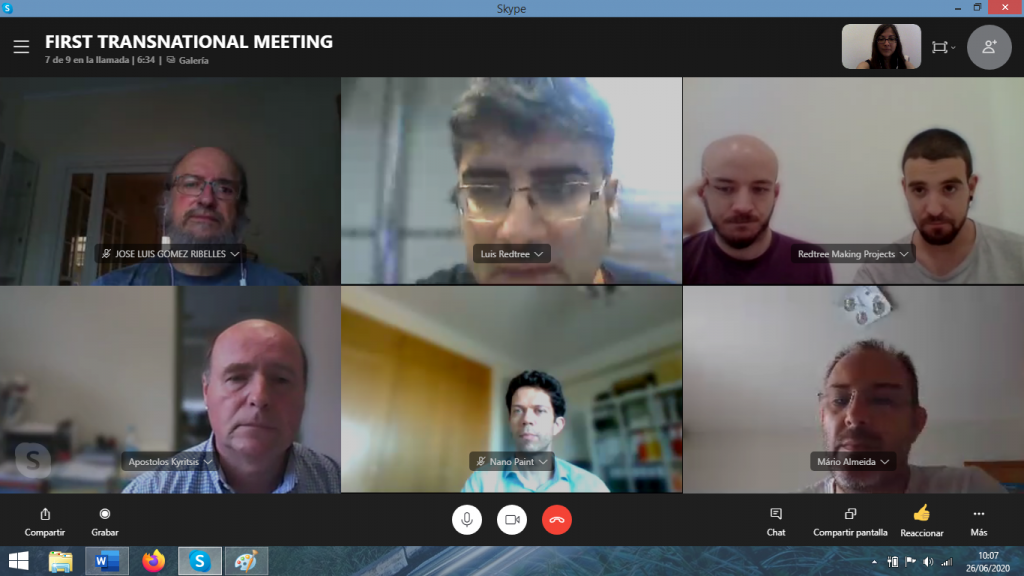
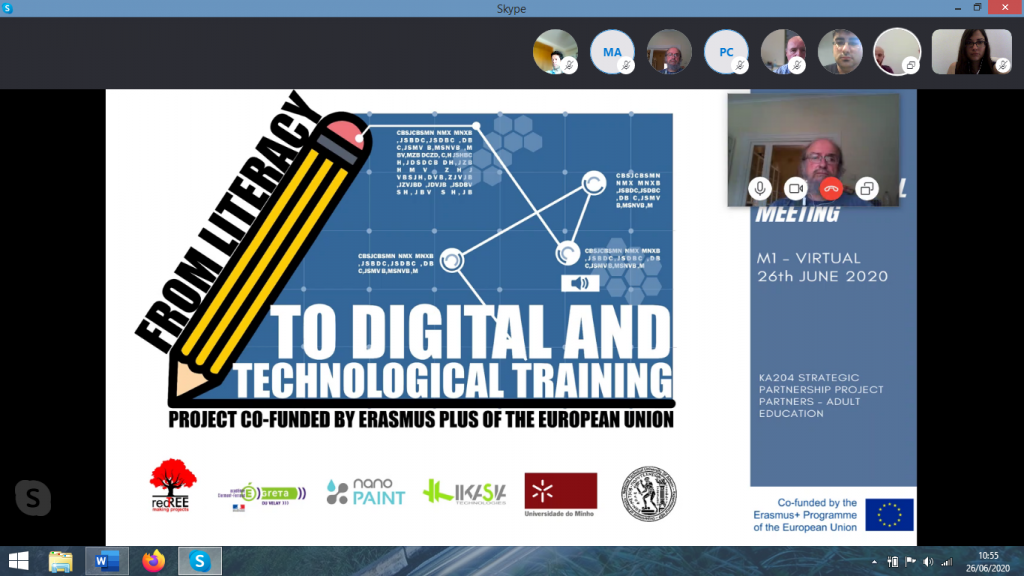
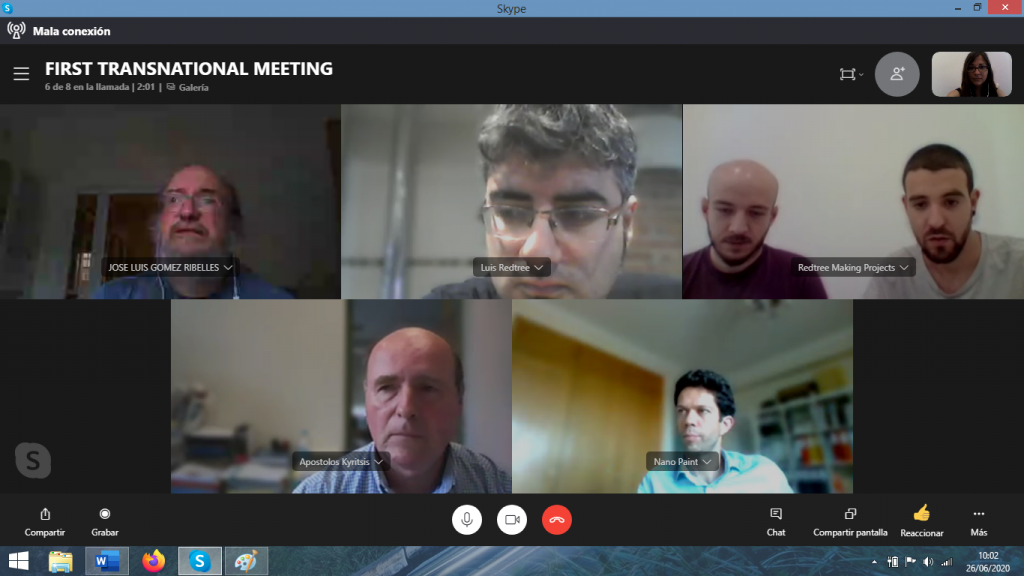
– SECOND TRANSNATIONAL MEETING (M2 – VIRTUAL)
The second meeting was held on September 24, 2020, this time also virtually due to the situation generated by COVID-19 and the mobility restrictions established between partner countries. The same platform was used as on the previous occasion, taking advantage of the communication channels already established.
The participants of the 6 partner entities met to present and evaluate the progress made, focusing the meeting agenda on the following topics:
- Reading and approval of the meeting agenda.
- Brief contextualization of the project.
- Advances made in the Intellectual Output of the project: O1 STRUCTURED AND PERSONALIZED COURSE FOR THE DIGITAL TRAINING OF ADULT PERSONS: FROM LITERACY TO DIGITAL AND TECHNOLOGICAL TRAINING
- Project monitoring and progress of tangible and intangible results.
- Review and confirmation of the project’s schedule, upcoming meetings, activities and tasks to be carried out.
- Midterm and meeting evaluation.
- Open speaking time.
- Reading and approval of the minutes of the meeting.
For the preparation of this meeting, we developed its agenda, power point presentations of the project and the progress of the results by Redtree and Ikasia (as coordinating entities of the intellectual results), a proposed index for the 3 levels of the course, a sample of learning pills corresponding to each level of the course, a visibility dossier that included a poster of the meeting and images of the courses, a banner for the webs, a press release, and supporting documentation: sheets of signatures, certificates for the attendance of the participants, and an online evaluation form.
The participating organizations reported on the different activities and coordination tasks that each one of them has developed to date, focusing especially on obtaining the expected results of the project. At this point, special emphasis was placed on progress in the development of the Intellectual Output O1 STRUCTURED AND PERSONALIZED COURSE FOR THE DIGITAL TRAINING OF ADULT PERSONS: FROM LITERACY TO DIGITAL AND TECHNOLOGICAL TRAINING.
The index proposal for the course and for the different specific areas that comprises the three levels were presented, thanks to the previous analyses carried out in the activities and the compilation of materials by several of the project’s expert entities and the help of the collaborators. In the same way, a first collection of learning pills that comprise each of the Didactic Units of the areas for the different levels was presented, following the methodology agreed upon in the first transnational meeting.
Regarding the tangible results, the creation of the project website, the style book, and the dissemination plan were presented, as well as the status of development of the rest was reported (mainly the brief guide for trainers).
Lastly, it was also used to review the project calendar and the dates for the following transnational meetings. In this sense, the working group in charge presented a proposal of measures to adapt the project schedule based on the evolution of the pandemic and the information that is being updated from the Erasmus Plus Programme, while guaranteeing the quality and sustainability of the project.
The evaluation of the meeting and the stages carried out was agreed to be done through online surveys, but small contributions were made during the meeting, in which the strengthening of the intersectoral network and the enhancement of the project’s objective were highlighted.
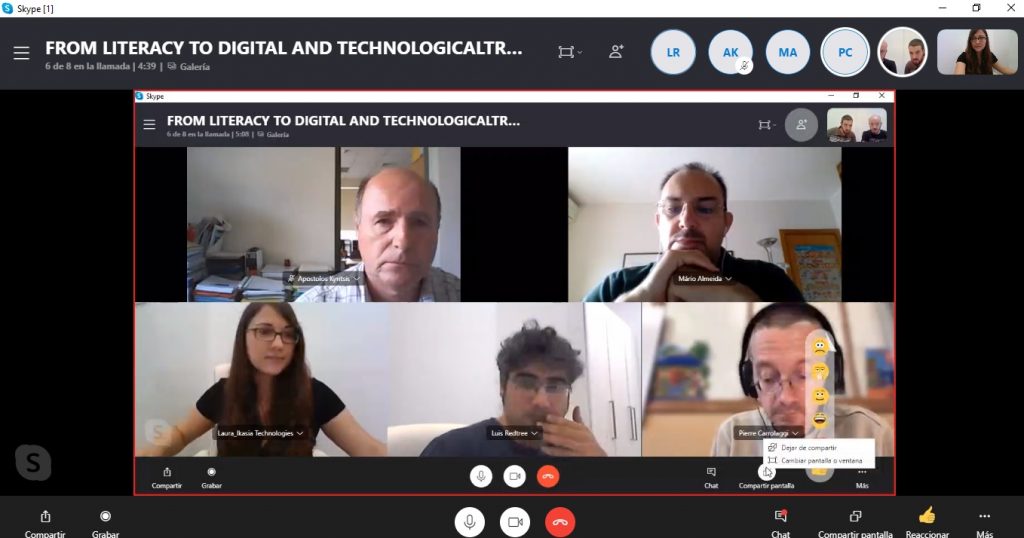
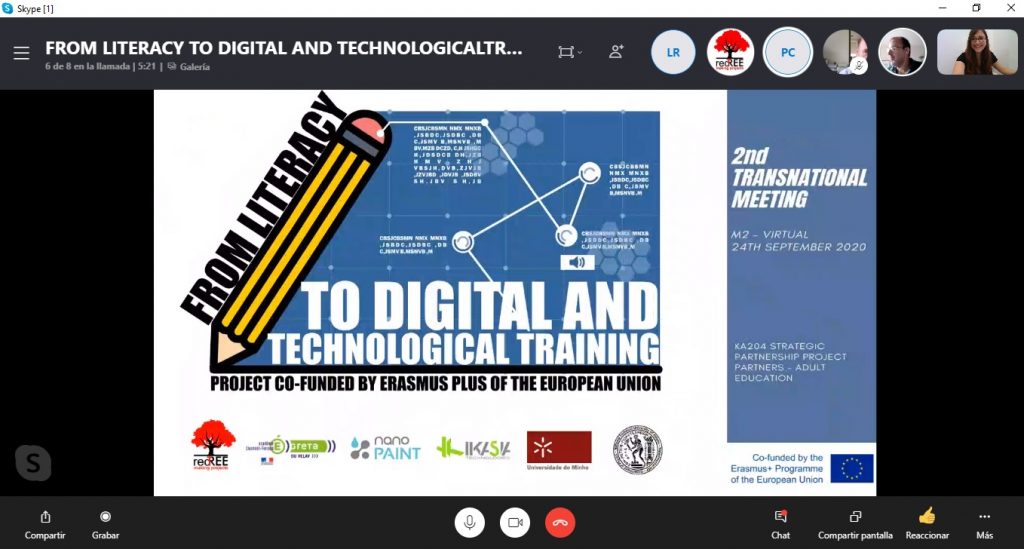
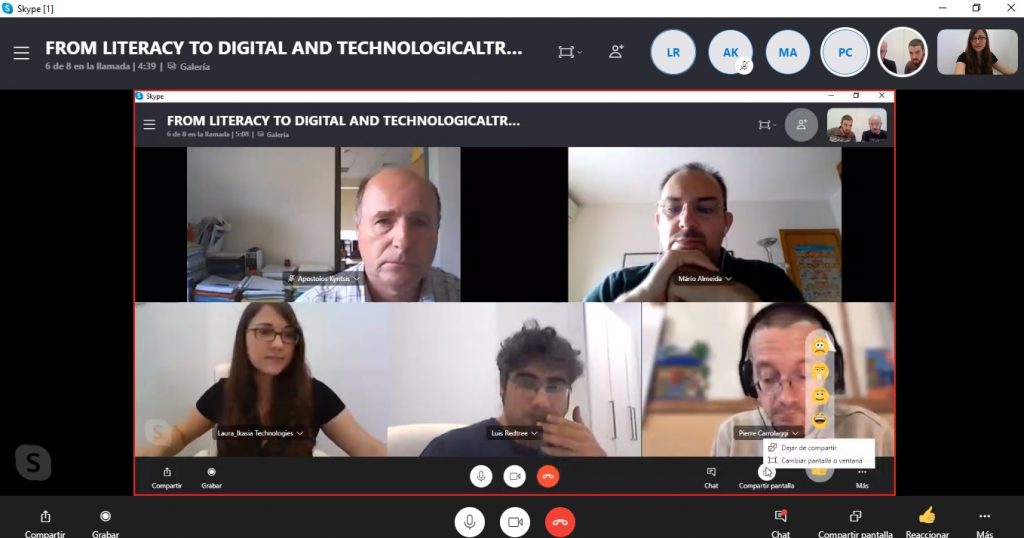
THIRD TRANSNATIONAL MEETING (M3- FRANCE)
The third Transnational Meeting of the project was held on November 2, 2021 in LE PUY-EN-VELAY (France), the host organization being GRETA DU VELAY.
This third meeting could be held in person due to the loosening of the mobility restrictions in force from the COVID-19 pandemic.
The main topics worked on at the meeting were:
- Reading and approval of the agenda.
- Introduction of the participants and contextualization of the project.
- Advances in the Intellectual Output of the project and in each of its three levels:
- INITIAL LEVEL: BASIC LITERACY FROM A TECHNOLOGICAL PERSPECTIVE.
- ADVANCED LEVEL: DIGITAL TRAINING THROUGH CRITICAL THINKING.
- EXPERT LEVEL: BASIC TECHNOLOGICAL TRAINING AND SCIENTIFIC THINKING FOR EMPLOYABILITY.
- Monitoring of the project and progress in the rest of the results.
- Review and confirmation of the project schedule, upcoming meetings, activities, and tasks to be carried out.
- Evaluation.
- Open speaking time.
- Reading and approval of the minutes of the meeting.
The meeting began with the reading and approval of the agenda by assent, then a round of presentations of all participants began, with a brief description of the main projects and objectives of their organizations. We used the fact that this was the first on-site meeting of this project to extend a little more at this point.
After a brief contextualization on the status of the project, work began on the Intellectual Output and its three levels. At this point each partner organization showed examples of the learning pills they had developed in order to discuss them, improve them, and ensure that its contents matched the assigned level and met the objectives of the project. A large number of pills had already been developed at each of the levels: INITIAL, ADVANCED, and EXPERT; these are approximately 75% of the course contents.
The e-Learning platform where the course is hosted was also discussed: its structure, visual image, functionalities, the educational tools that it integrates, etc.
At this meeting, it was also proposed and approved to translate the initial level of the course into French -something that was not initially planned in the project- in order to increase its impact and that of its Intellectual Output in France.
Next, we moved on to the monitoring of the project and the progress made in its tangible and intangible results, placing special emphasis on the collection of educational resources that will serve as support for the e-Learning course, discussing which are the most appropriate contents.
In the next point, a review and confirmation of the project schedule, upcoming meetings, activities, and tasks to be carried out was made.
The project suffered an initial delay due to the uncertainty and restrictions caused by the COVID-19 pandemic, we valued the possibility of requesting an extension for it to SEPIE in case it was necessary to develop all the activities and results of the project as planned.
Also, the date for the next Transnational Meeting was decided, which was set to be held in Braga, Portugal.
The meeting ended with a brief evaluation, an open speaking time, and the approval of the minutes.
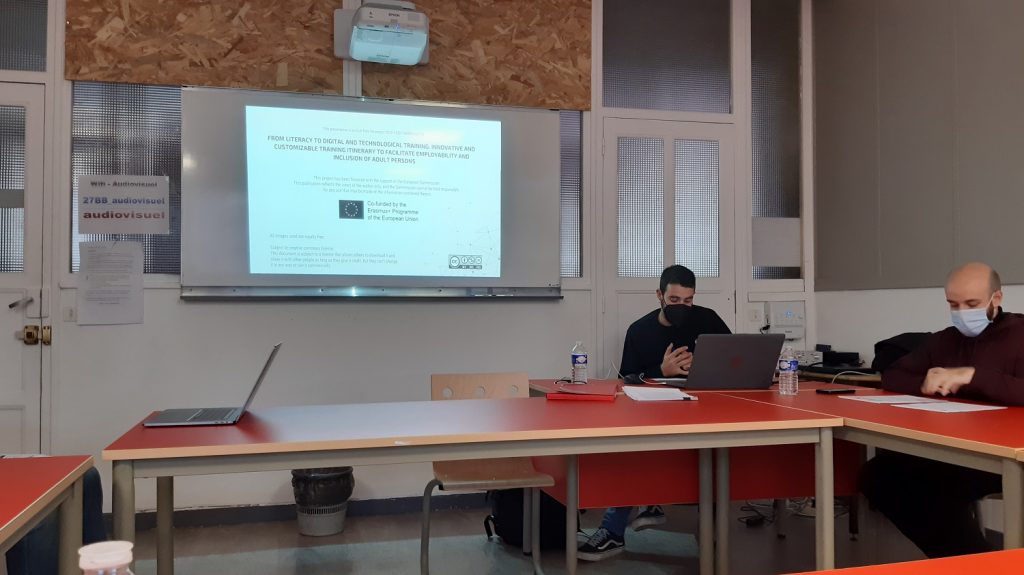
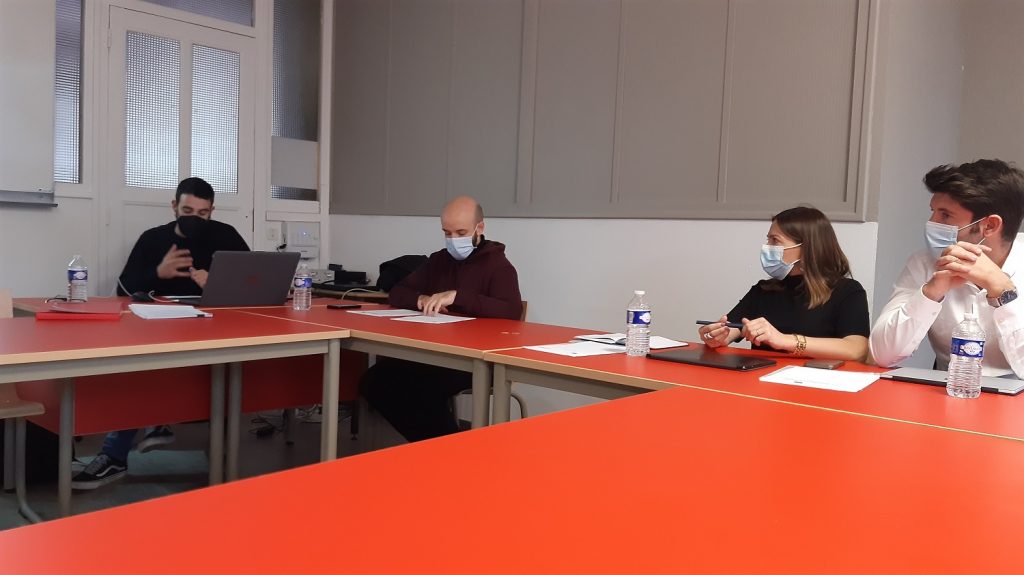
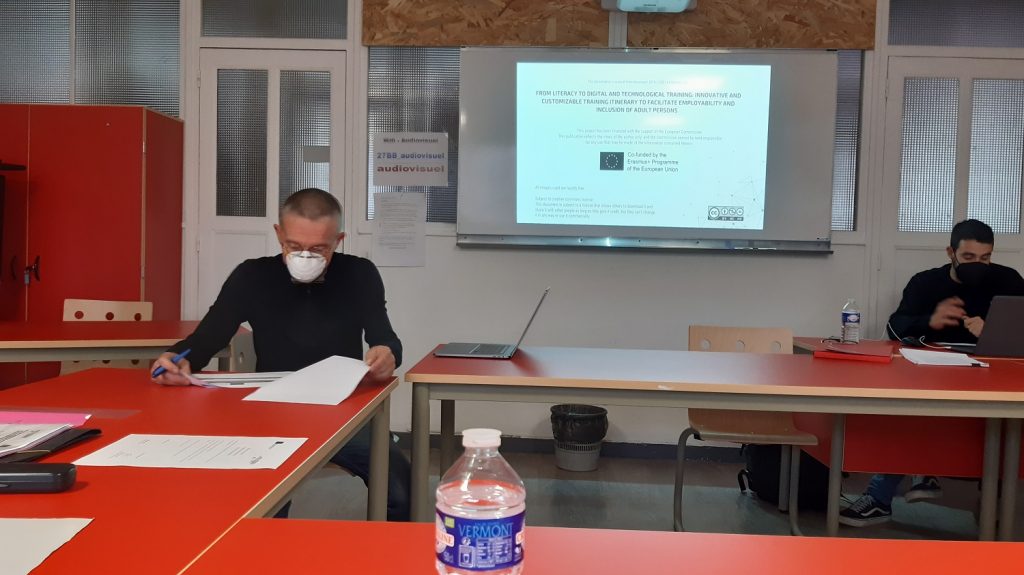
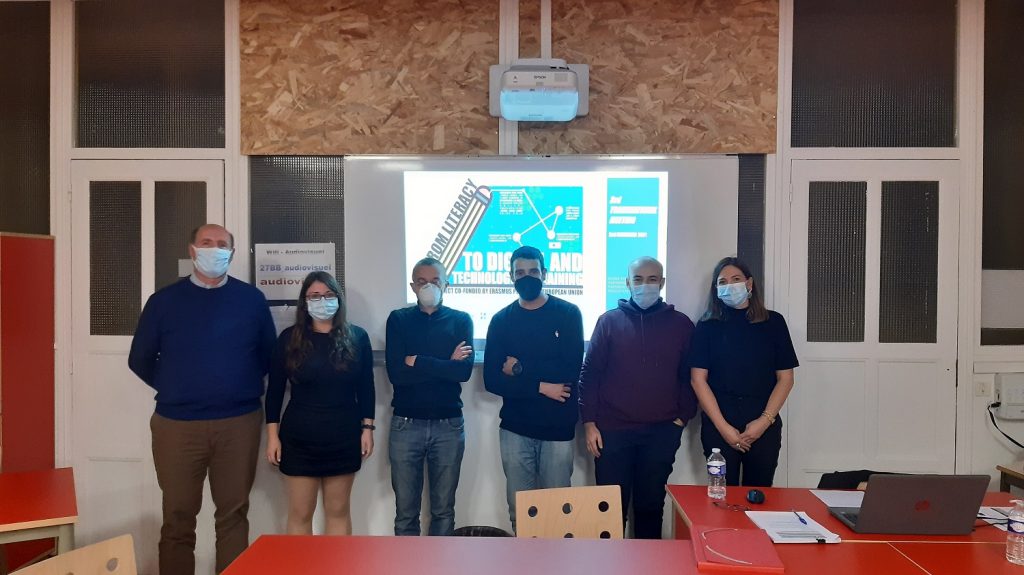
.
FOURTH TRANSNATIONAL MEETING (M4 – PORTUGAL)
The fourth Transnational Meeting of the project was held on February 10, 2022 at Universidade do Minho, Gualtar, Braga Campus (Portugal), with the host entities being Universidade do Minho and Nanopaint Lda.
The main topics worked on and discussed at this meeting were:
- Reading and approval of the agenda.
- Introduction of the participants and contextualization of the project.
- Advances in the Intellectual Output of the project and in each of its three levels:
- INITIAL LEVEL: BASIC LITERACY FROM A TECHNOLOGICAL PERSPECTIVE.
- ADVANCED LEVEL: DIGITAL TRAINING THROUGH CRITICAL THINKING.
- EXPERT LEVEL: BASIC TECHNOLOGICAL TRAINING AND SCIENTIFIC THINKING FOR EMPLOYABILITY.
- Monitoring of the project and progress made in the remaining results.
- Pilot tests and Multiplier Event.
- Review and confirmation of the project’s schedule, upcoming meetings, activities, and tasks to be carried out.
- Evaluation of the meeting.
- Open speaking time.
- Reading and approval of the minutes of the meeting.
This meeting began with the approval of its agenda and a brief presentation of the participants and the status of the project.
Then, we focused on the advances to the Intellectual Output, which at the time was already more than 90% of its completion, with a brief description of each of the levels of the course, its objectives, the competencies worked on, the methodology, and the evaluation.
Later, some examples of the pills and micro-pills that make up the three levels of the virtual course were presented and discussed.
There was also a demonstration of how the online course works once logged-in in the e-Learning platform, showcasing a tour from registration on the platform and the initial test that the students fill, to the different contents that they will study, also reviewing the functionalities of the e-Learning platform such as synchronous and asynchronous communication between teachers and students.
We recalled that this result was already in the review phase by all partner organizations, so all the pills and the contents of the course were available in a shared Dropbox folder to which all the project partners have access.
Most of the partner organizations had already reviewed the first two levels of the course (Initial and Advanced) and stated that the contents are of high quality, they only had remaining to review the last level (expert).
Next, a brief presentation was made on the follow-up of the project and its tangible results, highlighting that its website was practically finished, although was being constantly updated.
Afterwards, the pilot tests and the Multiplier Event of the project were discussed, the importance of the pilot tests to improve the quality of the Intellectual Output and the rest of the results of the project was recalled, with it enhancing its direct impact on adult students and defining its main characteristics.
The organization of the Multiplier Event of the project, planned to be carried out in collaboration with the adult school of the Polytechnic University of Valencia, was also explained. This event would be organized jointly between Redtree and Ikasia was set to take place in April-May 2022.
Subsequently, more emphasis was placed on the tasks and activities that remain to be carried out by each of the participating organizations: in the final stage of the project, the main pending activities were the pilot tests, the review and improvement of the Intellectual Output and the remaining results of the project, and the phase of dissemination of results.
The meeting ended with a brief evaluation, an open speaking time, and the approval of the minutes.
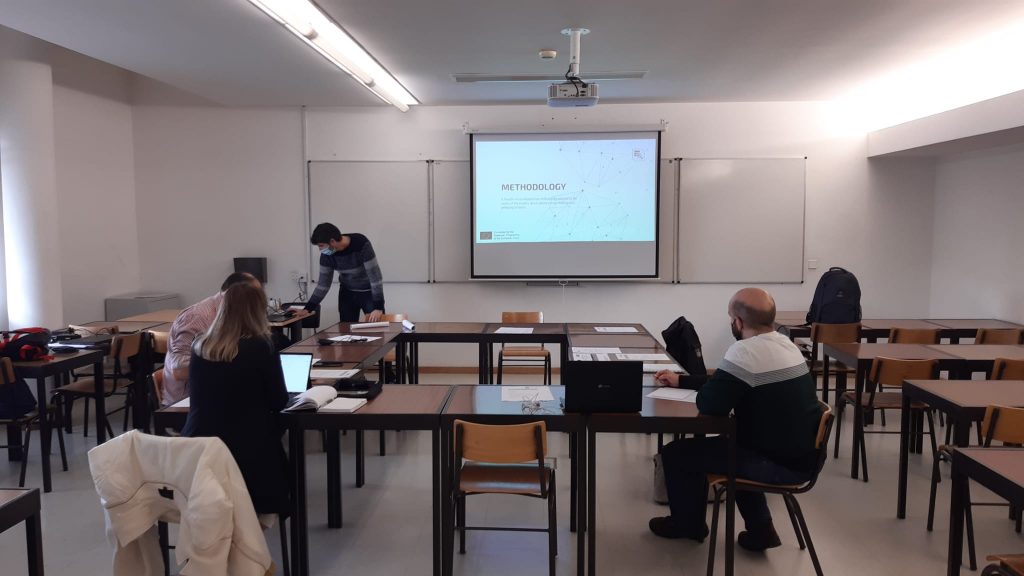
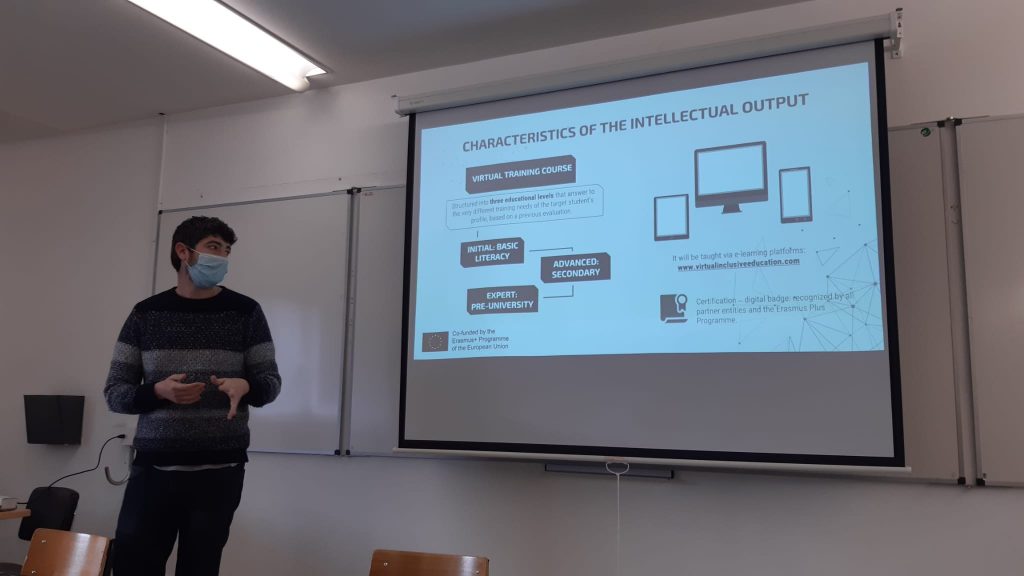
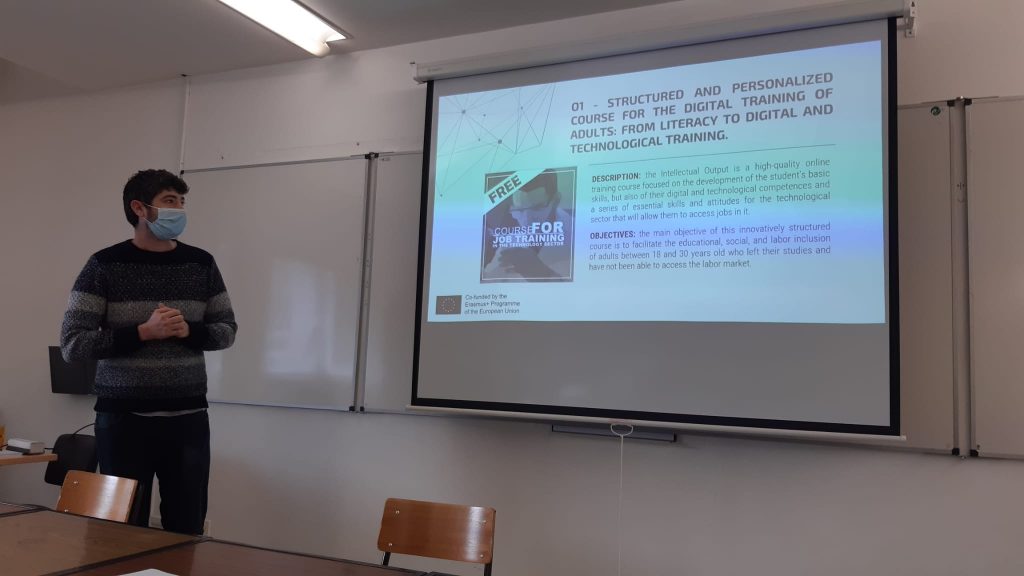
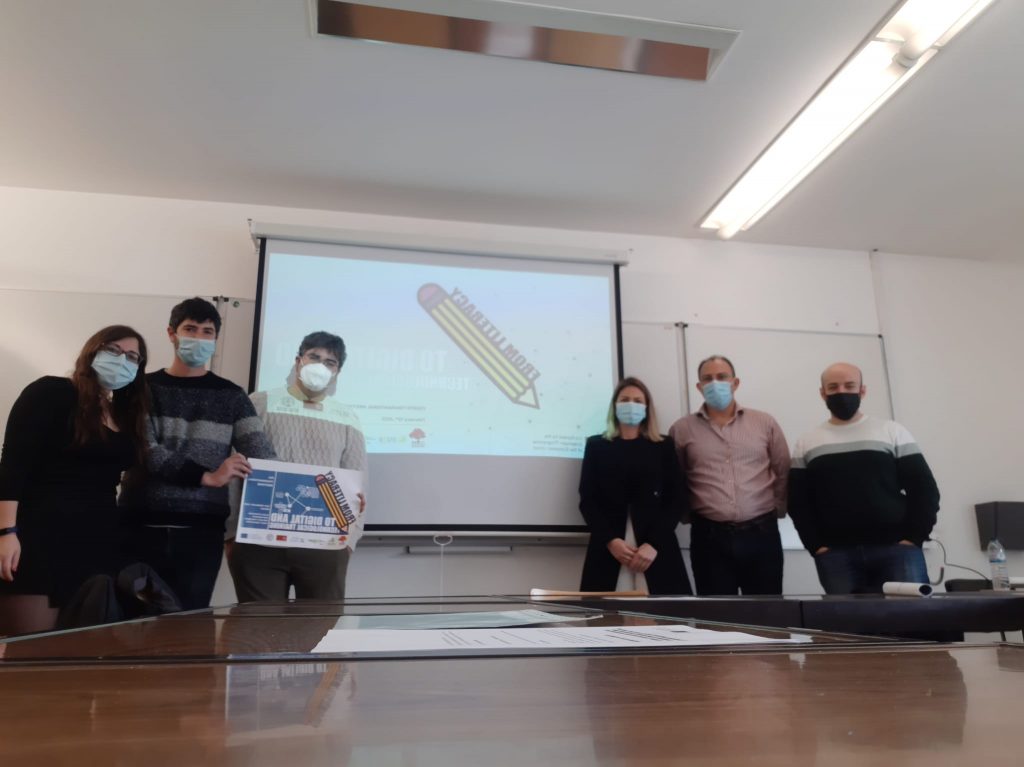
.
FIFTH TRANSNATIONAL MEETING (M5 – GREECE)
On June 16, 2022, the fifth Transnational Meeting of the project was held in person at the National Technical University of Athens, Zografou, Athens Campus (Greece).
The main topics worked on at this meeting were:
- Reading and approval of the agenda.
- Introduction of the participants and contextualization of the project.
- Review of the finished Intellectual Output and each of its three levels.
- Monitoring of the project and progress of the rest of the results.
- Dissemination phase.
- Review and confirmation of the project schedule, upcoming meetings, activities, and tasks to be carried out.
- Evaluation of the meeting.
- Open speaking time.
- Reading and approval of the minutes of the meeting.
Once the agenda was approved by assent, and the brief presentation of the participants and the project was made, the meeting focused on the review of the online course, which was already completed, and on its contents, divided into pills and micropills. The course being at 100% completion, and the review of its quality already carried out, only some improvement suggestions that came up as a result of the review remained to be incorporated.
The participating organizations expressed their satisfaction with the quality achieved in the contents of the course, and for the greater number of pills made than it was initially planned. There was also a debate on the certification of the course, and how to enhance the value of this certificate among companies in the technology sector, to improve the employability of adult students once they finish the course.
The project continued to be monitored, and despite the delays derived from the COVID-19 pandemic, we were able to develop all the activities and expected results, fulfilling its objectives and even improving some aspects of the Intellectual Output, such as its translation into more languages and the greater number of pills than expected. All this was only possible thanks to the 12-month extension to the project granted.
We also worked specifically on the dissemination phase of the project, having already carried out the sessions of its Multiplier Event and some pilot tests. At this point, all participating organizations were reminded of the importance of promoting the dissemination of the project’s results through their websites, social networks, contacts, etc.
Lastly, some of the pending tasks to be carried out were confirmed, such as the preparation of the supporting documentation of the project. An on-site evaluation of the meeting was carried out, and it was agreed to carry out an evaluation of the whole project through on-line surveys.
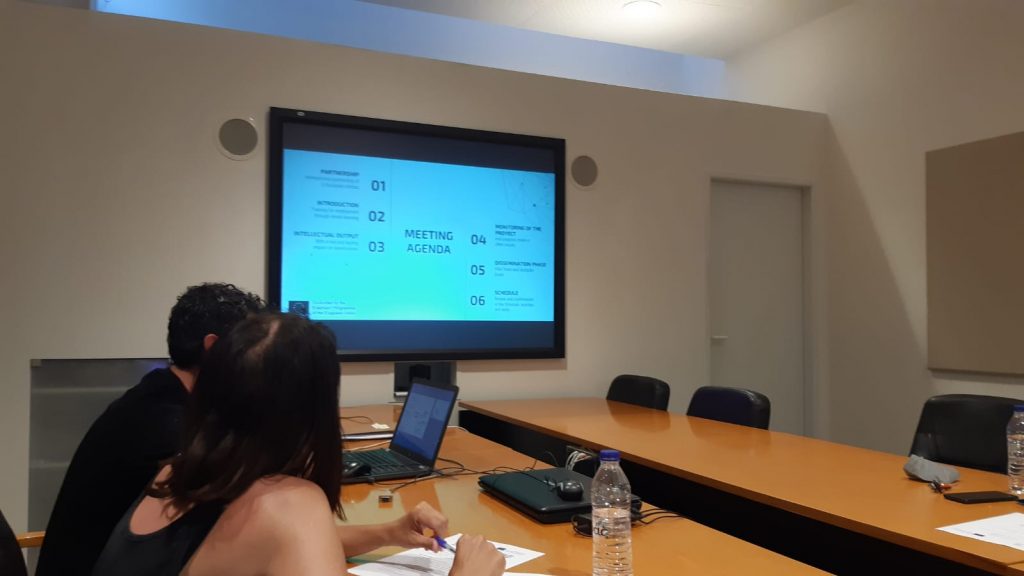
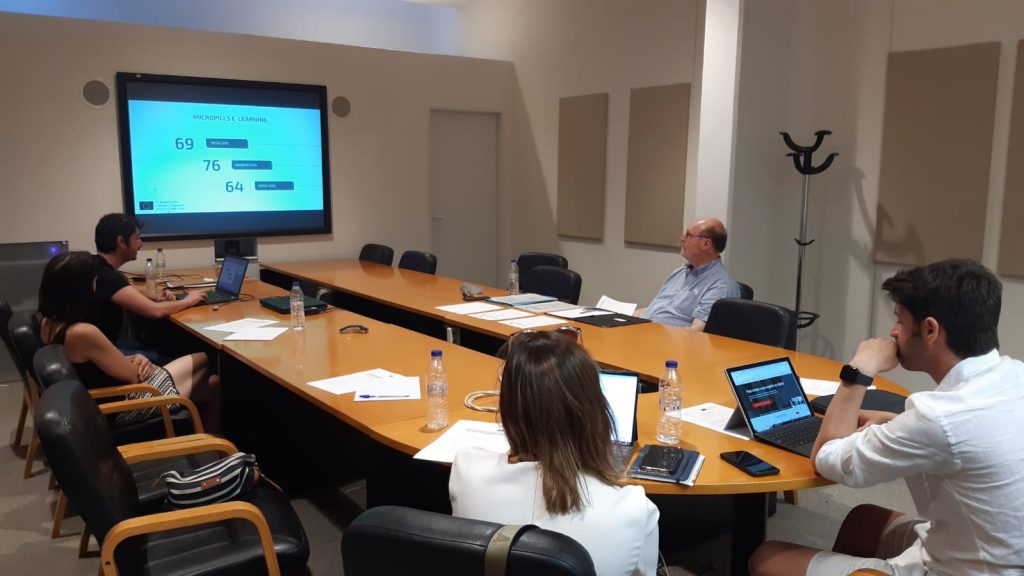
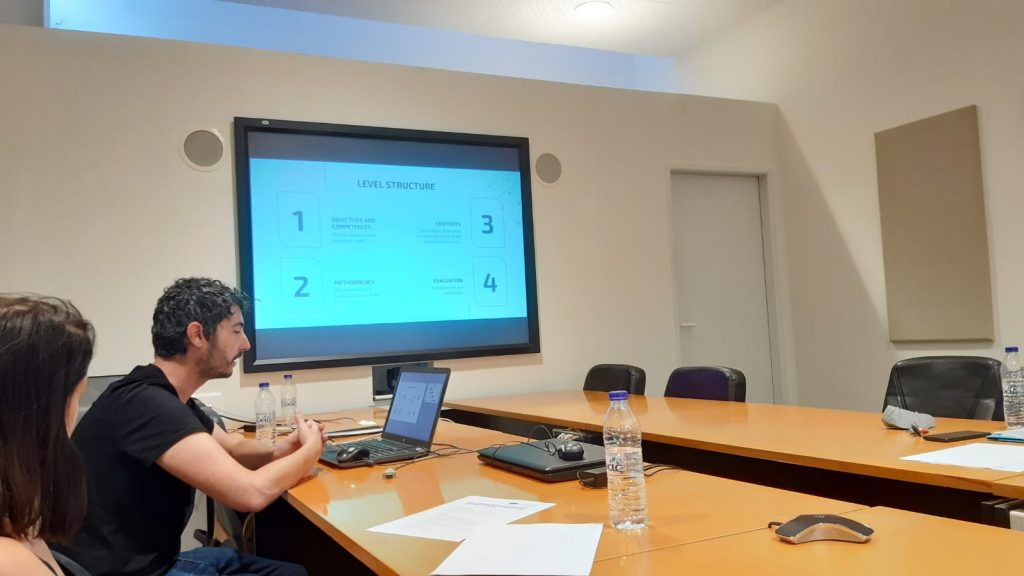
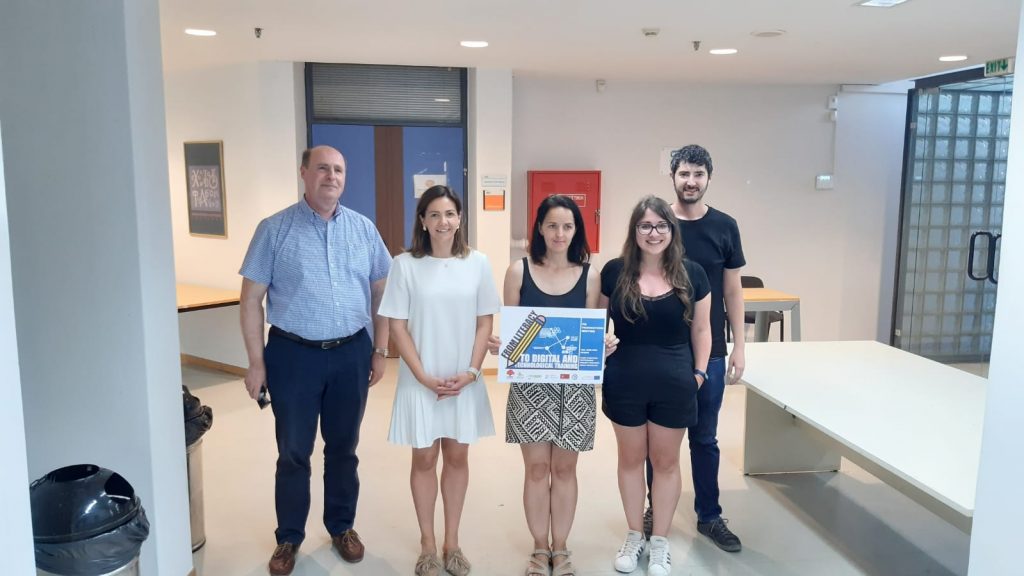
.
OTHER ACTIVITIES OF THE IMPLEMENTATION STAGE
- PROCESS 6 – COORDINATION AND MONITORING
A12: Online meetings have been and are being held for the coordination and communication of the project between the partners, via Skype.
- PROCESS 7- PRESENTATION AND DEBATE OF EUROPEAN REGULATIONS
A13 – The framework for the development and understanding of digital skills in Europe according to the curricula of the participating countries was analyzed in depth.
A14 – Activities to define and specify the basic and digital skills necessary for the participants for the education of adult persons.
PROCESS O1 – DEVELOPMENT OF THE O1: STRUCTURED AND PERSONALIZED COURSE FOR THE DIGITAL TRAINING OF ADULT PERSONS: FROM LITERACY TO DIGITAL AND TECHNOLOGICAL TRAINING
The processes linked to the Intellectual Output O1 of the project have begun, which is currently approximately 65% complete, although since there is a specific budget item for its financing (Intellectual Outputs), they have not been financed with the management and execution budget.
O1.1 The objectives and necessary competencies to develop in each of the course levels and in the 3 learning areas that comprise each level have been defined.
01.2 The methodology and pedagogical bases to be implemented have been established (micro e-learning – learning pills).
01.3 The contents of the three levels have been developed:
— O1- A4: Creation of contents and formal UDs for the Initial Level – 39% (29 pills).
— O1- A5: Creation of the contents and formal UDs of the Advanced Level – complete (75 Pills).
— O1- A6: Creation of the contents and formal UDs of the Expert Level – 56% (38 Pills).
At this time these activities are in the process of development, having made significant progress in the creation of the course materials and contents but not yet finished.
- PROCESS 8: MATERIALS FOR THE REPLICATION OF THE COURSE IN ADULT EDUCATION CENTERS
A15 –Online activities for the definition of contents of the BRIEF MANUAL FOR TRAINERS “FROM LITERACY TO DIGITAL AND TECHNOLOGICAL TRAINING”. This activity (15) has begun and is in the process of development, it is expected to be completed approximately in March, as planned.
- PROCESS 9: WEBSITE OF THE PROJECT
A18 – The graphic image of the project has been created and the project website is being developed.
A19 – The contents and materials are being updated.
- PROCESS 10: DISSEMINATION MATERIALS
A20 – Dissemination materials and activities have been created for the online visibility of the project.
A21 – Activities for the definition of virtual badges and their preparation.
- PROCESS 11: EVALUATION AND MONITORING OF THE IMPLEMENTATION
A22 – Monthly virtual meetings to monitor and evaluate the activities are being held.
- PROCESS 12: VISIBILIT OF THE PROJECT AND DEVELOPMENT OF MATERIALS
A23 – Virtual activities have been carried out to evaluate and improve the results.


